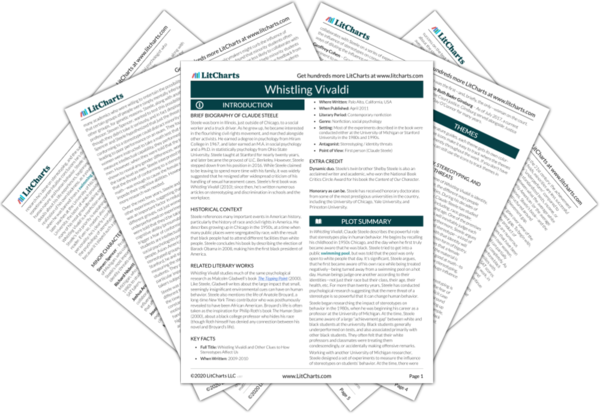John Henry was a legendary African American folk hero. The historical accuracy of his life (and whether he existed at all) is debatable, but according to legend he was a railway worker renowned for his ability to drive spikes into railroad tracks, and he died after winning a race against a mechanized spike-driving machine. For Claude Steele, John Henry’s hard, but ultimately self-destructive work ethic is a symbol for the “over-effort” often seen among highly talented, ambitious members of underrepresented groups—for example, black students at elite universities. In Steele’s view, these people often push themselves too hard, determined to make up for centuries of prejudice, and as a result damage their own chances for success and happiness.
John Henry Quotes in Whistling Vivaldi
John Henryism sounds like the attitude of people who show stereotype threat effects—people who are identified with, and care a lot about succeeding in, an area where their group is negatively stereotyped.

Unlock explanations and citation info for this and every other Whistling Vivaldi quote.
Plus so much more...
Get LitCharts A+









